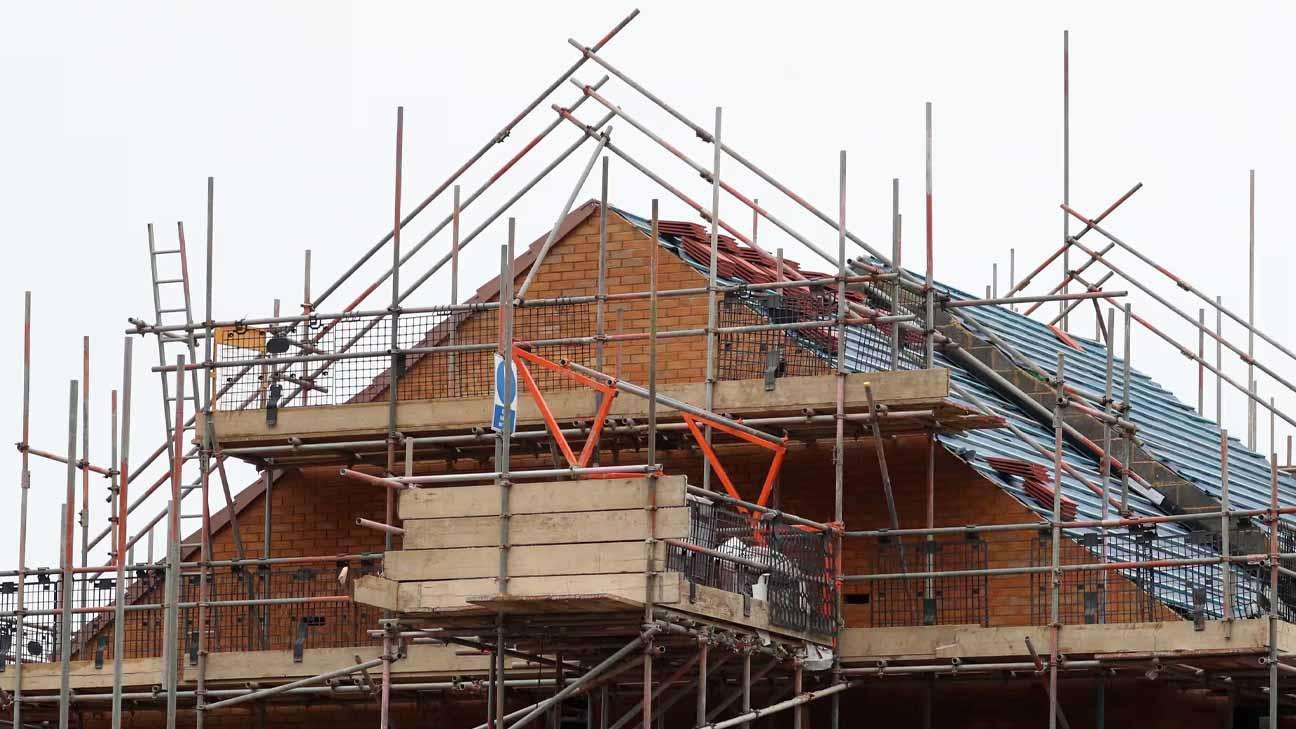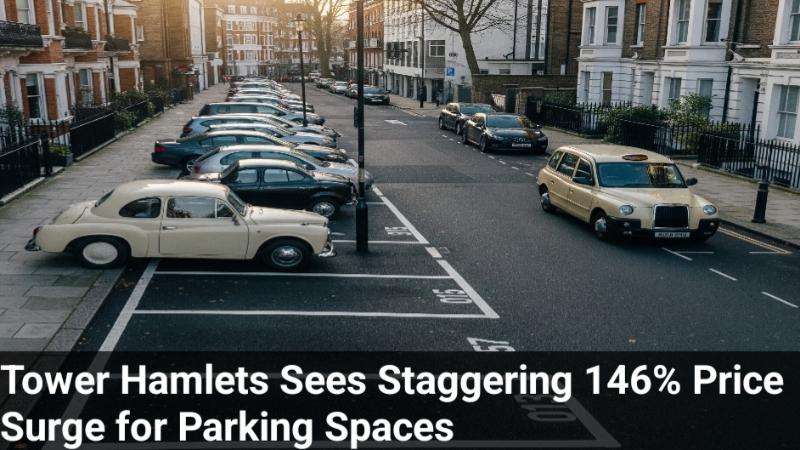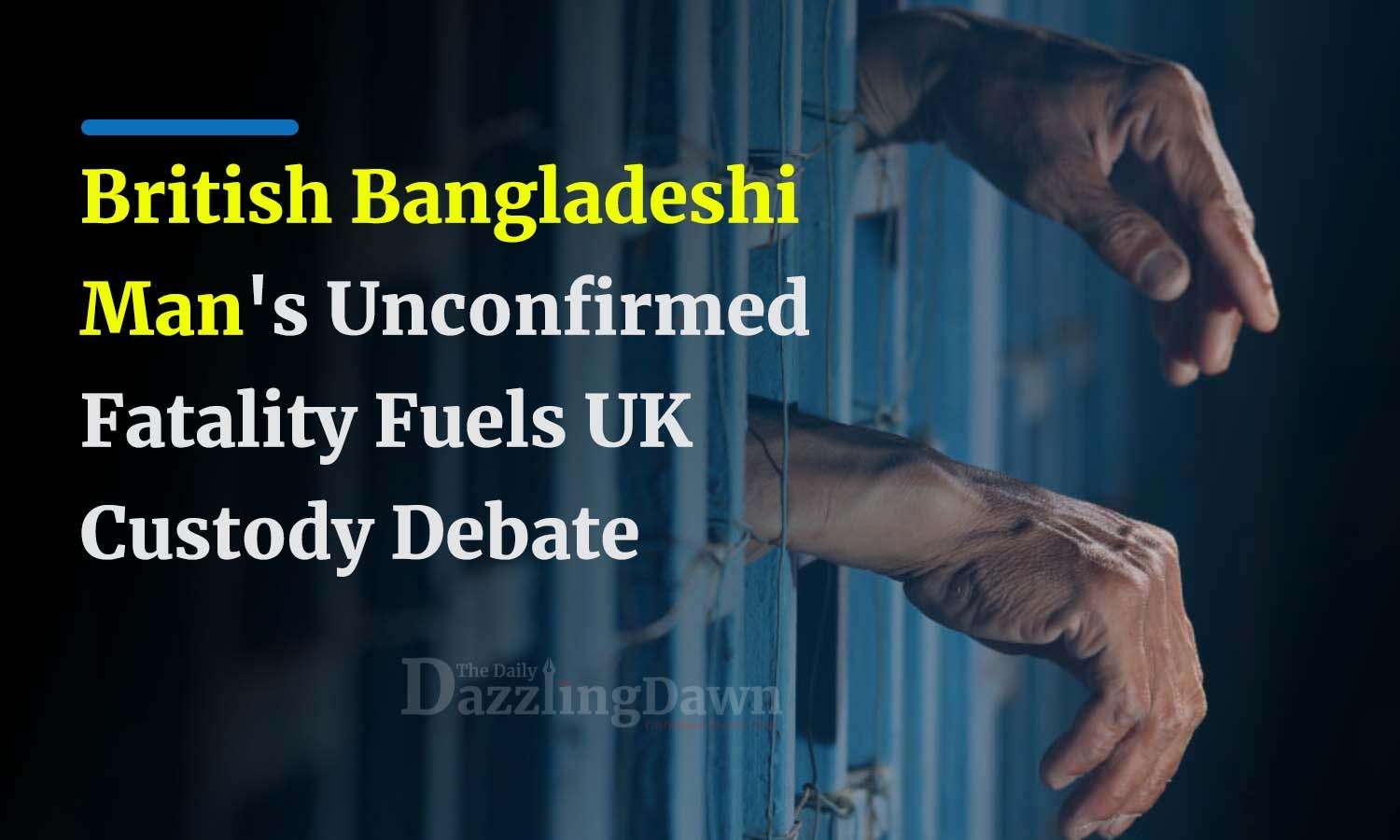(We updated the news story with confirmed information after receiving a statement from the council following its publication. The news desk decided not to change the headline because altering it would change the news link, which could confuse readers.)
Updated news
A deeply concerning, though as yet unconfirmed, report has emerged regarding the death of a British Bangladeshi man, originally from Sylhet, who was reportedly from Tower Hamlets but died recently while held in a Camden prison. Sources close to the family indicate the man was approximately 50 years old, and a post-mortem examination is said to be currently underway. Authorities have not yet confirmed the details of this specific incident. His name was Mohid Ali.
At 8.30 Pm Councillor Confirms British Bangladeshi Man Died on Thursday who is from Tower Hamlets
Councillor Abu Talha Chowdhury, Cabinet Member for Safer Communities for Tower Hamlets Council, informed the Daily Dazzling Dawn that a British Bangladeshi individual passed away on Thursday. A postmortem examination is currently underway.
This report is still unconfirmed yet by police. Report surfaces amidst a broader national landscape of fatalities in or following police contact across England and Wales, figures that consistently highlight significant concerns about police accountability and the treatment of individuals in detention, particularly those from ethnic minority backgrounds.
The National Picture: Deaths in Police Custody
According to the Independent Office for Police Conduct (IOPC), the official body responsible for overseeing police conduct, a "death in or following police custody" is broadly defined. It includes any fatality that occurs while a person is being arrested, detained, or transferred, or where injuries contributing to the death happened during the period of detention. This can take place on police premises, in public, or during transport, and also covers apparent suicides within two days of release from custody.
For the most recent reporting period, 2023/24, the IOPC recorded a total of 24 deaths in or following police custody across England and Wales. In addition, there were 68 apparent suicides following police custody and 60 other deaths following police contact that were independently investigated by the IOPC. These figures indicate a persistent number of such incidents annually, underscoring the ongoing need for rigorous independent scrutiny. For comparison, in 2020/21, there were 19 deaths in or following police custody and 54 apparent suicides following custody.
Disproportionate Impact on BAME Communities
A critical and long-standing concern within these national statistics is the disproportionate number of deaths involving individuals from Black, Asian, and Minority Ethnic (BAME) backgrounds. INQUEST, a charity providing expertise on state-related deaths, reports that 16% of all deaths in police custody or otherwise following police contact since 1990 have involved people with Black, Asian, and Minoritised Ethnicities.
This disproportionality is even more pronounced when examining the circumstances surrounding these deaths:
- BAME individuals are more than twice as likely to die as a result of the use of force or restraint by the police compared to other deaths in custody.
- Mental health-related issues are nearly two times more prevalent in BAME deaths in custody compared to other deaths.
These findings, drawn from INQUEST's extensive casework, raise serious questions about institutional racism as a contributing factor in these fatalities. The issue has been highlighted by various official and international bodies, including the landmark 2017 Independent review of deaths and serious incidents in police custody by Dame Elish Angiolini QC, which called for action in tackling discrimination and acknowledged the disproportionate number of BAME deaths following restraint. United Nations experts have also commented on "structural racism" being rooted at the heart of British society, urging the UK to "end impunity" for human rights violations against Black people by police officers.
Tower Hamlets: Clarifying Previous Incidents and the New Report
It is important to distinguish the unconfirmed report of a death in Camden prison from other police-involved incidents that have occurred in Tower Hamlets. While the initial query specifically mentioned Tower Hamlets, available research does not indicate recent deaths in police custody within the borough.
For example, the fatal stabbing of 23-year-old Abdul Jalloh in Tower Hamlets on August 5, 2024, was a tragic case of violent crime that led to a criminal investigation and convictions, but his death did not occur while he was in police custody. Similarly, a Domestic Homicide Review from 2014 concerning "CJ," a 43-year-old Bangladeshi woman in Tower Hamlets, detailed her murder by her teenage son, with police responding to the scene. This was a domestic incident, not a death in police custody.
While cases of individuals of Bangladeshi ethnicity dying in police custody have been reported, these incidents occurred in Bangladesh, not the United Kingdom, and involved different legal and oversight frameworks.
The Path Forward: Accountability and Transparency
The Independent Office for Police Conduct (IOPC) remains the crucial body for independently investigating serious incidents involving the police, including all deaths in or following police contact. Its role is vital for ensuring accountability and maintaining public trust. Complementing this, organizations like INQUEST provide invaluable expertise and advocacy for bereaved families, consistently raising concerns about racism and human rights abuses in custody and detention.
The unconfirmed report of a death in Camden prison, if verified, would add to the ongoing concerns surrounding deaths in police custody. It underscores the critical need for transparent and timely information from authorities, particularly when incidents involve individuals from diverse communities. The persistence of disproportionality in BAME deaths, despite past reviews and recommendations, illustrates that police accountability and reform are not static goals but ongoing processes that require continuous vigilance and genuine engagement with affected communities.
.jpg)







.svg)


_2.jpg)
